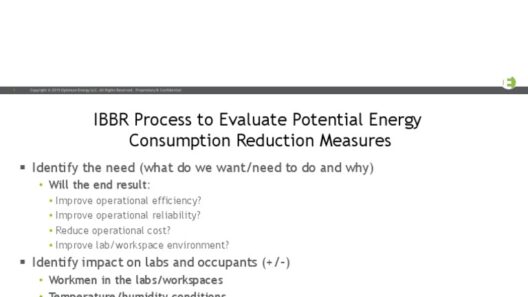The concept of energy conservation is foundational across various disciplines of physics, from mechanics to thermodynamics. At the heart of this principle lies the question: “Is energy always conserved in the universe?” This inquiry not only beckons scientists but also intrigues the layperson, revealing a profound relationship between energy, matter, and the cosmos. To delve into this enigma, we must explore the fundamental principles governing energy, the conditions under which it is conserved or transformed, and the implications of these principles on cosmic scales.
To begin with, energy conservation refers to the principle that the total energy of an isolated system remains constant over time. In classical mechanics, this means that energy can neither be created nor destroyed; it can only change forms, such as potential energy converting into kinetic energy. However, this simplicity belies the complexity that emerges when we scale up to the universe itself. As we step beyond the confines of classical physics, the intricate behaviors of energy begin to unfold.
In the realm of general relativity, Einstein introduced the notion that mass and energy are interchangeable through the famous equation E=mc². This fusion of mass and energy suggests that, under certain conditions, mass can also contribute to the energetic tapestry of the universe. Black holes, for example, pose a unique challenge to our understanding of energy conservation. The gravitational pull of a black hole is so intense that not even light can escape its grasp, raising questions about what happens to energy that crosses the event horizon.
In essence, once energy is swallowed by a black hole, it appears to be lost to the observable universe. However, theoretical physicists, including Stephen Hawking, posited that black holes emit radiation due to quantum effects near the event horizon. This hypothesis, now known as Hawking radiation, suggests that black holes could eventually evaporate, providing a fascinating solution to the conundrum of energy conservation in such extreme environments.
Furthermore, we must consider the expanding universe, a phenomenon observed through the redshift of distant galaxies. As space expands, the energy density of the universe changes. The emergence of dark energy, an enigmatic force believed to drive this accelerated expansion, adds another layer of complexity to the conservation narrative. It appears that the total energy content of the universe is not merely conserved but rather dynamically transforms in response to cosmic changes.
The interplay of dark energy and normal (baryonic) matter introduces questions about the constancy of energy across cosmic time scales. As the universe expands, the distribution of energy changes. This phenomenon leads to a larger philosophical inquiry: does the universe have a net energy balance? According to current understandings, the answer remains ambiguous. Some theories propose that the universe may net out to zero energy when considering both matter and gravitational energy, while others imply that the introduction of dark energy complicates this balance.
It’s also worth mentioning the implications for thermodynamics. In isolated systems, the second law of thermodynamics states that entropy, a measure of disorder, tends to increase. In the cosmos, this translates to an overarching trend where energy becomes more evenly distributed over time, leading to a “heat death” scenario. This eventuality implies that while energy is conserved, it becomes less useful over time as it transforms into forms that are harder to harness for work.
Quantum mechanics adds another layer of complexity to our inquiry into energy conservation. At the quantum level, particles exhibit both wave-like and particle-like properties, leading to phenomena that seem to defy classical intuition. The behavior of virtual particles, which appear and disappear within the confines of the uncertainty principle, raises questions about the very nature of energy. In quantum field theory, energy can spontaneously fluctuate, challenging traditional notions of conservation in a local context.
Moreover, the behavior of energy in multi-dimensional frameworks, as suggested in string theory and other speculative theories, opens the door to new dimensions of energy conservation that are yet to be understood. Are these dimensions contributing to a greater reservoir of energy that challenges our standard paradigms? The exploration of such possibilities invites intrigue into the future of physics, as well as the limits of human understanding regarding energy and entropy.
Fascination about the conservation of energy extends beyond theoretical considerations; it permeates our daily lives. From renewable energy sources to conservation efforts, understanding energy dynamics can improve the efficiency with which we utilize natural resources. Acknowledging the complexities and paradigms of energy conservation catalyzes a deeper respect for our environment and the cosmic systems that govern it.
Ultimately, the question of whether energy is always conserved in the universe remains multifaceted. While fundamental principles assert a certain invariance in energy conservation, the nuances introduced by relativistic effects, quantum phenomena, and cosmic expansion create a rich tapestry of inquiry. As we peel back the layers of this cosmic conundrum, we not only gain insight into the workings of the universe but also sharpen our awareness of the delicate balance of energy that sustains life on Earth. The cosmos is a boundless expanse of energy transformation and conservation, an interplay that invites continuous exploration and a commitment to stewardship in how we harness and respect this essential force.








